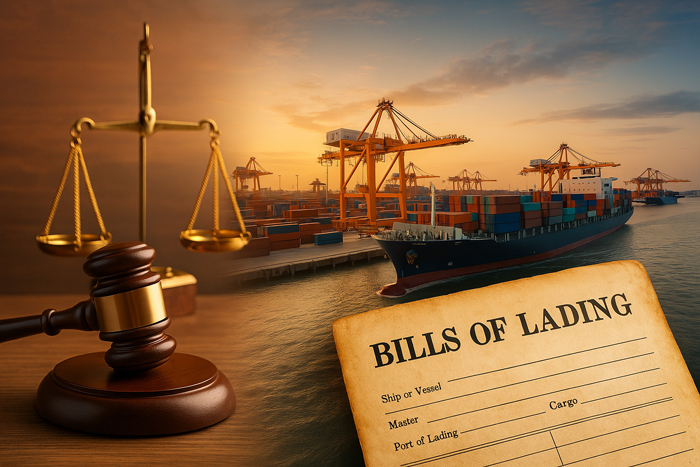Once enacted, it will replace the 169-year-old colonial-era Indian Bills of Lading Act, 1856, establishing a simplified and globally aligned legal framework for maritime shipping documentation in India.
In a significant boost to India’s ports and shipping sector, the Rajya Sabha passed the Bills of Lading, 2025, on the first day of its monsoon session on Monday.
Already approved by the Lok Sabha, the bill now awaits Presidential assent before becoming law. Once enacted, it will replace the 169-year-old colonial-era Indian Bills of Lading Act, 1856, establishing a simplified and globally aligned legal framework for maritime shipping documentation in India.
Calling for its passage, Sarbananda Sonowal, Union Minister for Ports, Shipping & Waterways, said the bill reflects India’s constitutional values and marks a critical step in retiring outdated colonial laws.
“As our maritime sector expands rapidly, this reform will boost ease of doing business, reduce disputes, and strengthen India’s global trade standing. As the saying goes, ‘Whoever rules the waves, rules the world.’ It’s time India leads from the front.”
The new law introduces clearer, business-friendly terminology and streamlines rights and obligations for carriers, shippers, and lawful holders. By reducing ambiguity in shipping documentation, it aims to lower litigation risks while reinforcing India’s position in international trade through alignment with global standards.
The act’s renaming signals a decisive move away from colonial legal frameworks. It simplifies legal language, restructures complex provisions, and incorporates an enabling clause allowing the central government to issue directions for effective implementation.
Crucially, the bill includes a standard repeal and saving clause, preserving the legal validity of actions taken under the previous act. These reforms collectively aim to enhance clarity, facilitate smoother enforcement, and strengthen India’s commitment to maritime reform and trade modernisation.


